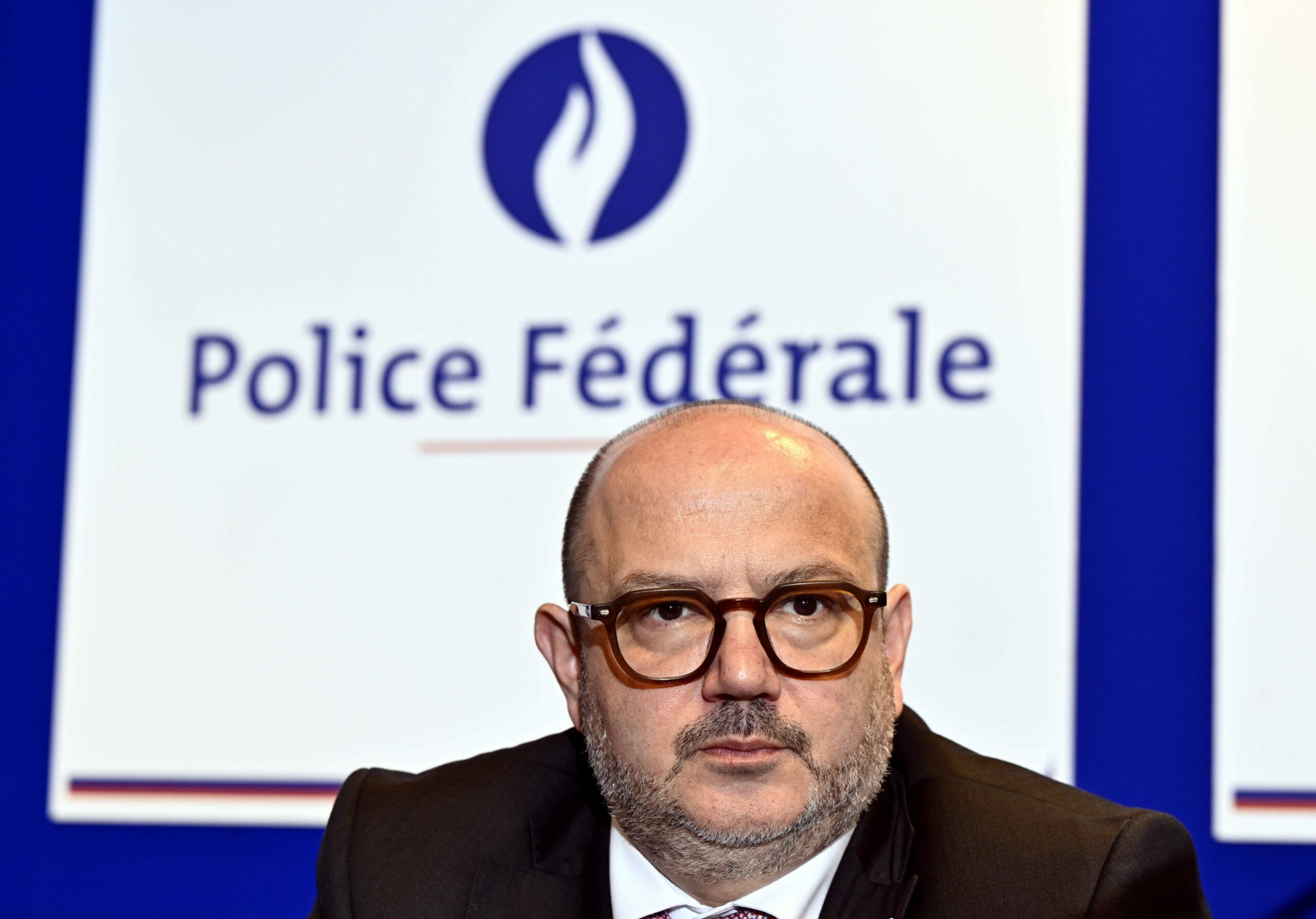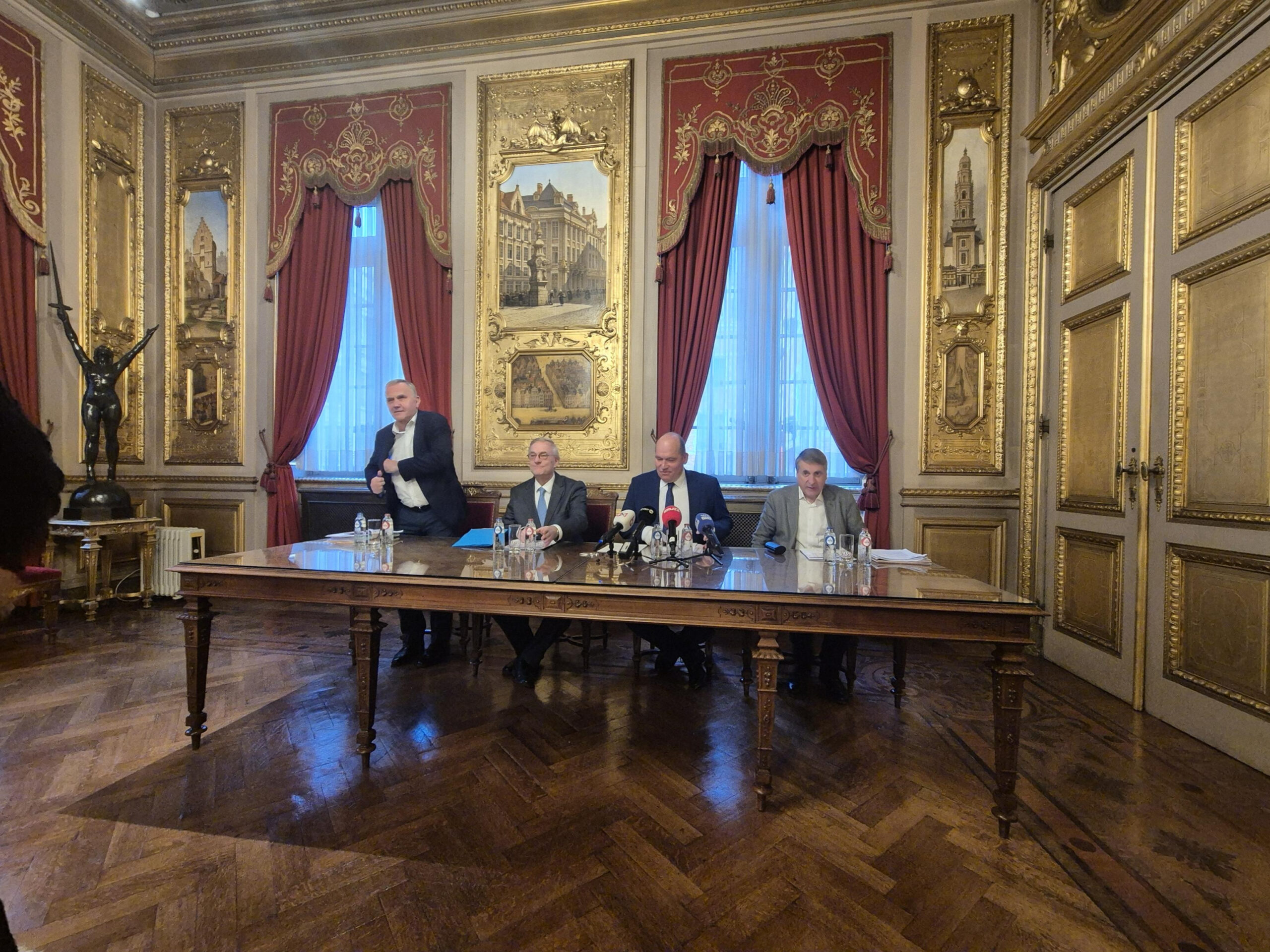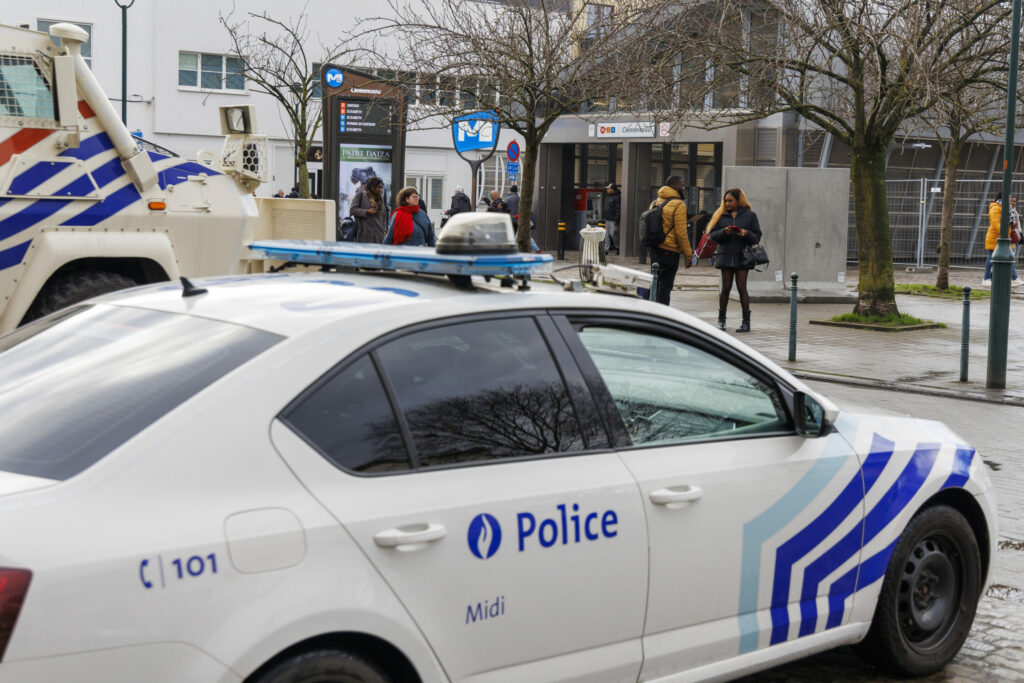Interior Minister Bernard Quintin (MR) has finalised his plan to merge Brussels police zones by 2027. The announcement on Tuesday prompted a fresh wave of fury from local mayors, the main opponents to the measure.
Mainstream politics present security issues as Brussels' big problem that must be resolved through short-term repression and long-term prevention. A string of shootings in February killed two people, and a similar violent saga exactly one year previously killed one person.
In this context, political parties of the left and right have scrambled to prove they have a grip on drug-related violence. Quintin, one of the four federal ministers from MR, touts a merger of the capital's 19 police zones as the solution to Brussels' security woes. For years, Flemish political parties had also advocated for a merger.
On Tuesday, he finalised the plan, envisioning a vote by the end of 2025 and a fully operational system sometime in 2027.

Interior Minister Bernard Quintin (MR). Credit: Belga / Eric Lalmand
Under the proposal, a central police command led by a single chief of police will make operational decisions in consultation with the judiciary and the police council.
The council will include all 19 Brussels mayors, whose role will "remain crucial", according to Quintin. "They will jointly decide on the deployment of police across the territory, ensuring fair and balanced representation for all municipalities," he said.
A royal decree will determine the number of officers needed in each commune. A separate force will oversee security in the metro but all will remain under the authority of the centralised zone.
'Blatant disregard' for local power
The announcement has raised the ire of Brussel's 19 local mayors, who view a merger as a "false solution" no matter their place on the political spectrum. Mayors of the Socialist Party (PS) have expressed their "profound indignation" at Quintin's announcement, which was made to the media at the same time as a meeting with the mayors.
"This unilateral media statement illustrates a blatant disregard for consultation with the municipalities, which are the primary stakeholders in this reform. It is an unacceptable way of forcing things through," they argued via PS Brussels leader Ahmed Laaouej.
"While everywhere else, police zones are free to merge or not, Brussels is constrained by a royal decree, without any democratic consultation," they added.

L-R: Woluwe-Saint-Pierre mayor Benoit Cerexhe, Etterbeek mayor Vincent De Wolf, Brussels-Ville mayor Philippe Close and Woluwe-Saint-Lambert mayor Olivier Maingain on 22 January 2025. Credit: Belga / Timon Ramboer
The main mayoral gripe is funding. Quintin says the Federal Government will assume some €30 million of the existing debt, a figure the PS mayors call "a drop in the ocean compared to the real needs of Brussels' police zones."
A Brulocalis study published in January calculated that police zones did not receive the €300 million they were entitled to during the last mandate due to the continued use of the outdated KUL norm to calculate municipal needs. Again, Quintin plans to reform this norm but does not specify how.
The second concern is decision-making. "Leaving it to the mayors to negotiate the internal organisation of this future single zone, without a clear framework, paves the way for budget cuts and a deterioration of police services in our municipalities," the mayors said.
Realistic timeline?
Jelle Janssens is a criminology professor at the University of Ghent and has written influential reports on police zone mergers in Belgium. "It is good that the government is coming up with something," he told The Brussels Times in reaction to Quintin's announcement. "My initial thought was, 'wow, that was fast'. I am quite surprised this plan is on the table already."
Human rights activists worry that efficiency is prioritised over everything else, leading to potential human rights concerns being overlooked. "I totally agree." says Janssens. "I think that is why the Minister has mentioned variables that could in the long term, include parameters other than just efficiency and efficacy. They could include justice, they could include responsiveness, but it's still vague."
Is Quintin's timeline realistic? "I believe so," according to the professor. "But there are a lot of 'ifs', because these changes need to pass through the Council of States and a lot of advisory boards [..] I think much depends on the speed of the parliamentary work and the advice they receive."

